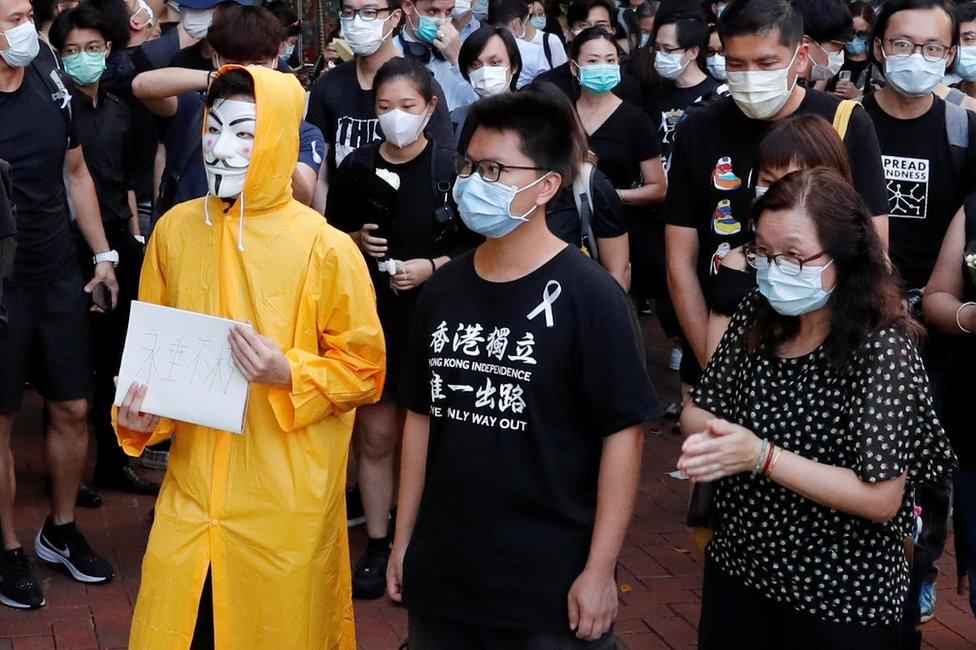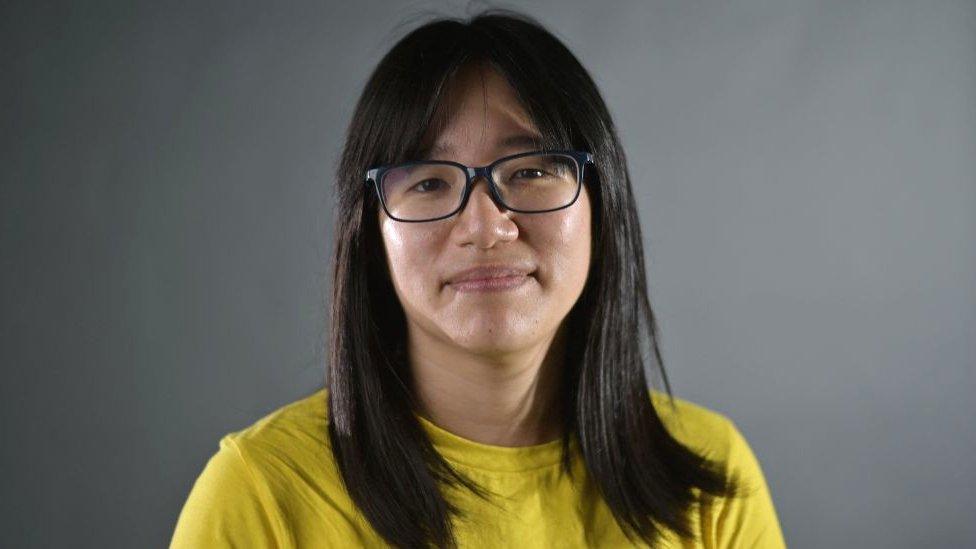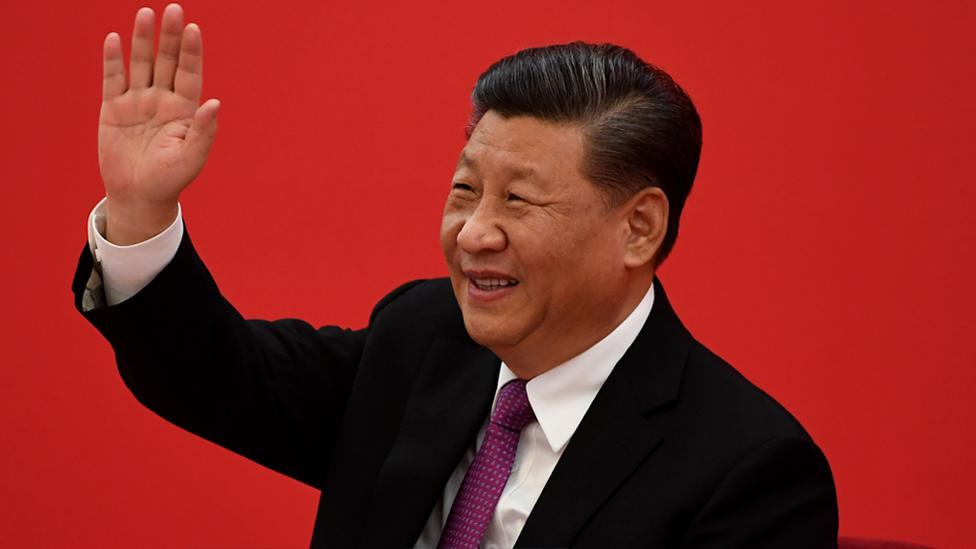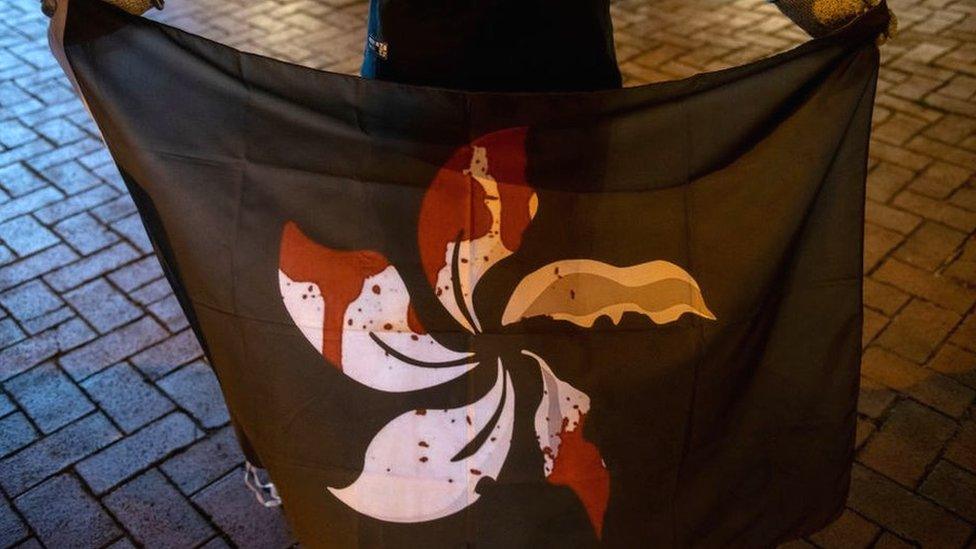Hong Kong's 'Captain America' protester jailed under national security law
- Published

Hong Kong activist Ma Chun-man, centre, has been jailed for nearly six years
A Hong Kong activist known as Captain America 2.0 for holding the superhero's shield at rallies has been jailed for nearly six years under the controversial national security law.
Ma Chun-man was convicted of inciting secession by chanting slogans promoting Hong Kong's independence from China.
Ma is the second person to be jailed under the law, which was passed in 2020 after protests the previous year.
It reduces Hong Kong's autonomy and makes it easier to punish activists.
Beijing insists that the widely criticised legislation is needed to bring stability to the city, but critics say it is designed to squash dissent in Hong Kong.
The case against Ma, 31, was based on slogans he chanted at rallies, signs he held and interviews he gave to the media.
On Thursday, a Hong Kong court sentenced him to five years and nine months in prison, with the judge accusing Ma of showing no remorse.
In a letter to the judge read out before his sentencing, Ma said, "I do not feel any regret", Reuters news agency reported.
"On my road to democracy and freedom, I can't afford to be a coward," he wrote.
One of Ma's lawyers, Chris Ng, told reporters he was not sure if there would be an appeal.
Hong Kong erupted in street protests in 2019 over a proposed law that would have made it easier for China to extradite residents to the mainland. The demonstrations evolved into a broader pro-democracy movement that continued into 2020.
The national security law has been seen by many as a response by Beijing to the protest movement, and a means to make it easier for China to arrest dissidents.
Hong Kong authorities arrested 117 people under the law in the year after it was passed and charged more than 60, including democratic politicians, activists, journalists and students.
More have been charged in the months since, including members of a group known for organising the city's famed annual vigil for victims of the deadly 1989 Tiananmen Square crackdown.
The first trial under the law took place earlier this year and ended in Tong Ying-kit, a former waiter, being found guilty of inciting secession and terrorism. He was sentenced to nine years in prison.
Tong rode a motorbike into police officers while flying a flag with a protest slogan.
Unlike that first trial, the case against Ma did not involve any accusations of violence - he was tried based only on acts of speech.
The slogans Ma is said to have chanted included "liberate Hong Kong, revolution of our times" and "Hong Kong independence, the only way out".
Amnesty International called his sentence "outrageous".
"The Hong Kong government must stop endlessly expanding its definition of 'endangering national security' as a means of locking up people who express views it doesn't like," said Amnesty's deputy secretary general Kyle Ward.
From protests to 'patriots': Why China is bent on crushing Hong Kong dissent
- Published10 September 2021

- Published25 October 2021

- Published19 March 2024
